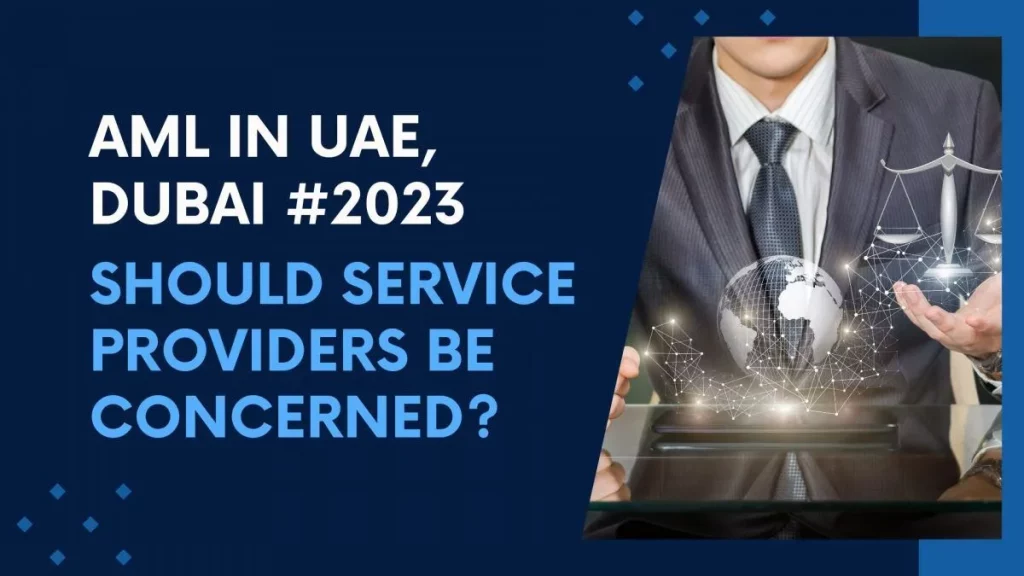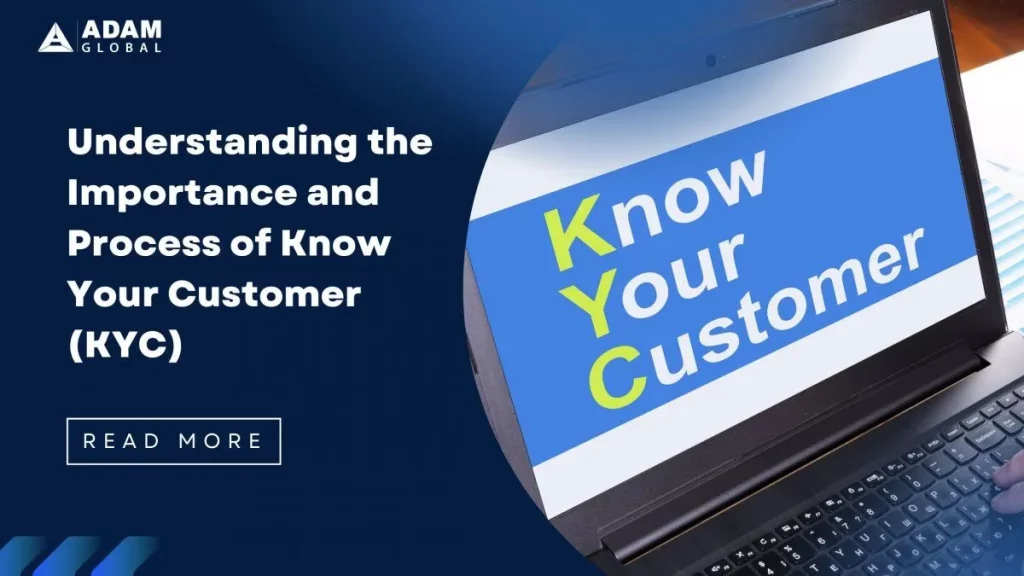AML stands for Anti-Money Laundering. It refers to a set of laws, regulations, and procedures intended to prevent criminals from channelising of illegally obtained funds into the economy.
In the United Arab Emirates (UAE), AML regulations are enforced by the Central Bank of the UAE. These regulations are designed to prevent and combat money laundering and terrorist financing. They require financial institutions and other regulated entities to implement systems and controls to detect and report suspicious activity and to carry out customer due diligence.
The relevance of AML in the UAE and Dubai
The relevance of (AML) is quite significant in Dubai. Here’s why:
- The UAE is a major financial centre: The UAE is home to a few major financial institutions, including banks, investment firms, and insurance companies.
- Dubai is a major hub for international trade: Dubai is a major hub for international trade, with goods and services flowing in and out of the emirate daily.
- The UAE has a strong commitment to combating AML: The UAE has a strong commitment to combating AML, as it’s a member of the Financial Action Task Force (FATF), which is an international body that sets standards for AML compliance in UAE. They have enacted several laws and regulations to combat the crime.
What is AML?
Anti-money laundering is the execution of transactions with the goal of turning money received unlawfully into money earned legitimately. AML regulations for financial service companies are getting stricter and stricter in UAE. They must be stopped from supporting terrorism and/or money laundering.
The purpose of AML is threefold:
- Detection: Financial institutions are required to monitor their customers’ transactions and report any suspicious activity. This includes large transactions, rapid movement of funds, or transactions that don’t fit a customer’s usual pattern of behaviour.
- Prevention: By making it more difficult for criminals to launder money, AML laws act as a deterrent to crime. If criminals can’t enjoy the proceeds of their crimes, the theory goes, they’ll be less likely to commit those crimes in the first place.
- Prosecution: When suspicious activity is detected and reported, it can be used as evidence in the prosecution of criminals. This not only helps to bring criminals to justice, but also acts as a further deterrent to crime.
The role of AML in maintaining financial integrity and security
- Protecting the financial system from criminals: AML regulations help to prevent criminals from using the financial system to launder their illegal proceeds.
- Enhancing financial transparency: AML regulations require financial institutions to collect and report information about their customers and transactions.
- Building public confidence in the financial system: AML regulations help to build public confidence in the financial system by demonstrating that the system is taking steps to prevent criminals from using it to launder money.
- Combat corruption. AML regulations can help to combat corruption by making it more difficult for launderers their ill-gotten gains.
- Protect consumers: AML regulations can help to protect consumers from financial fraud by making it more difficult for criminals to open bank accounts and conduct financial transactions in their names.
Who Needs AML Compliance?
Anti-Money Laundering (AML) regulations apply to a wide range of businesses and service providers:
- Banks and Credit Unions: These financial institutions are at the forefront of AML efforts. They are required to know their customers, monitor transactions, and report any suspicious activity.
- Money Service Businesses (MSBs): This includes money transmitters, check cashing services, currency exchange businesses, and sellers of money orders and traveller’s checks.
- Securities Dealers: Broker-dealers and mutual funds are required to comply with AML regulations to prevent the securities market from being used for money laundering.
- Casinos: Casino’s deal with large amounts of cash and are therefore subject to AML regulations. They are required to report any transactions over a certain amount and any suspicious activity.
- Real Estate Professionals: In some jurisdictions, real estate professionals are required to comply with AML regulations due to the potential for money laundering through property transactions.
- Precious Metals and Stones Dealers: The trade in precious metals, stones, and jewels can be used as a cover for money laundering, so dealers in these goods are often subject to AML regulations.
- Lawyers, Notaries, and Accountants: These professionals can be involved in transactions (like the creation of corporations) that could be used for money laundering, so they are often required to comply with AML regulations.
- Insurance Companies: Certain types of insurance policies can be used to launder money, so insurance companies are also subject to AML regulations.
- Cryptocurrency Exchanges and Wallets: As the use of cryptocurrencies has grown, so too has their potential use in money laundering. As a result, many jurisdictions now require cryptocurrency exchanges and wallet providers to comply with AML regulations.
- Corporate service providers : As registered CSP shall comply with the following general obligations in the conduct of its business activities, exercise due diligence, and conduct its business, in such a manner as to guard against the facilitation of money laundering and the financing of terrorism and proliferation also assist and cooperate with the relevant law enforcement authorities in preventing money laundering and the financing of terrorism and proliferation.
The risks and penalties associated with non-compliance
The risks and penalties associated with non-compliance with AML regulations can be severe. These risks include:
- Civil penalties: Financial institutions and other businesses that fail to comply with AML regulations can be fined by the government. The amount of the fine can be significant, and it can also lead to reputational damage.
- Criminal penalties: Individuals who fail to comply with AML regulations can be prosecuted and imprisoned. The penalties for criminal violations can be very severe, and they can also include fines and forfeiture of assets.
- Loss of business: Businesses that fail to comply with AML regulations can lose their license to operate. This can lead to the loss of customers and revenue, and it can also damage the business’s reputation.
The potential impact on business reputation and customer trust
- AML non-compliance can damage a business’s reputation and customer trust.
- This can lead to lost customers, investors, and market share.
- It can also lead to increased regulatory scrutiny and legal liability.
- Businesses can protect their reputation and customer trust by implementing a comprehensive AML compliance program, training employees on AML compliance, monitoring the financial system for suspicious activity, and staying up to date on AML regulations.
When and where you can Get AML Services in UAE?
1. The ideal time for businesses to seek AML services
The ideal time for businesses to seek Anti-Money Laundering (AML) services can vary depending on the nature and scale of the business, its industry, and the regulatory environment in which it operates. However, here are some general situations when a business should consider seeking AML services:
- Starting a Business in a High-Risk Industry
- Entering New Markets
- Regulatory Changes
- Growth and Scaling
- Suspicion of Money Laundering
- Due Diligence and Audits
Remember, prevention is always better than cure. Implementing robust AML measures from the start can save businesses from potential fines, legal issues, and reputational damage in the future.
2. The process of obtaining AML services in the UAE and Dubai
In the UAE and Dubai, businesses can obtain AML services from various providers. The process usually involves the following steps:
- Identifying a suitable AML service provider: Businesses should research and identify a provider that offers services tailored to their needs.
- Initial consultation: This involves discussing the business’s specific needs with the provider.
- Proposal and agreement: The provider will propose a plan of action and, if acceptable, the business and the provider will enter into an agreement.
- Implementation: The provider will then implement the agreed-upon AML procedures.
- Ongoing monitoring and support: The provider will continue to monitor the business’s compliance with AML regulations and provide support as needed.
3. Introduction to various AML service providers in UAE
There are many AML service providers globally, and their services can vary widely. Adam Global is one such provider, and they are a well-known international business advisory firm. They offer a range of services, including AML compliance. Their AML services are comprehensive and include risk assessments, policy development, training, and ongoing support.
Step-by-step guide on how businesses or an individual can achieve AML compliance
Anti-Money Laundering (AML) services are available in the United Arab Emirates (UAE), however the process is complex and technically demanding. If you are unfamiliar with legal or financial jargon, it could be difficult to understand. However, it becomes simpler to follow when divided into a step-by-step procedure.
u003cstrongu003eIdentifying a Professional Service Provideru003c/strongu003e:
The first step in the process is to identify a reputable and professional service provider who is experienced in providing AML services in the UAE. The service provider should have a deep understanding of local and international AML regulations and practices.
u003cstrongu003eRegister for goAMLu003c/strongu003e
goAML is a software application developed by the United Nations Office on Drugs and Crime (UNODC) for use by Financial Intelligence Units (FIUs) worldwide. This is a mandatory process that involves evaluating your applicability for the system, verification of necessary documents, obtaining a certificate of registration, and coordinating with the FIU of UAE. This step ensures your financial operations align with local and international regulations.
u003cstrongu003eCriminal Record Screeningu003c/strongu003e:
The service provider will conduct thorough background checks to ascertain if you have any history of criminal activity. This helps ensure that the customer has a clean slate and reduces the risk of money laundering.
u003cstrongu003eKnow Your Customer (KYC)u003c/strongu003e:
KYC is a standard banking policy exercise that involves verifying the identity of clients to prevent identity theft, fraud, money laundering and other illegal activities. This process can include verifying the customer’s identity, understanding their financial activities, and assessing the potential risks of illegal intentions.
u003cstrongu003eRisk Assessmentu003c/strongu003e:
This involves evaluating the amount of risk involved in conducting business with the customer, which varies according to factors like the type and nature of business, geographic location, and delivery channel. High-risk businesses or transactions may require additional scrutiny.
u003cstrongu003eRisk Mitigationu003c/strongu003e:
Once the level of risk has been identified, strategies need to be developed to minimize and manage those risks. This might involve implementing stringent checks and balances, carrying out regular monitoring, and staying updated with changes in the customer’s behaviour and in the regulatory environment.
u003cstrongu003eAML Assessmentu003c/strongu003e:
This is a comprehensive review where customers go through multiple stages of defences to detect, prevent and disrupt money laundering and related criminal activities. It includes monitoring customer transactions, reporting suspicious activities to relevant authorities, and maintaining proper records.
u003cstrongu003ePolitically Exposed Persons (PEP) Checku003c/strongu003e:
A PEP is an individual who is or has been entrusted with a prominent public function. Due to their position and influence, they are at a higher risk of involvement in bribery and corruption. AML service providers screen customers to identify if they are a PEP or if they are close associates or family of a PEP, which requires enhanced due diligence.
The process of obtaining AML services in UAE is a comprehensive one that not only helps businesses comply with regulatory requirements but also protects them from potential financial and reputational damage associated with money laundering and other illicit activities.
The importance of employee training and awareness
The importance of employee training and awareness in Anti-Money Laundering (AML) in the UAE, or in any country for that matter, cannot be overstated. Here are the key reasons why:
- Understanding of Legal Requirements
- Detection of Suspicious Activities
- Prevention of Financial Crime
- Risk Mitigation
- Reputation Protection
- Regulatory Compliance
AML training and awareness are vital not only for regulatory compliance and financial integrity but also for the broader aim of preventing financial crime and safeguarding society.
Why Service providers should be concerned?
- Legal Consequences: Non-compliance with AML regulations can lead to severe legal penalties, including hefty fines and sanctions. In extreme cases, it can also result in imprisonment.
- Reputational Risk: AML breaches can cause significant damage to a company’s reputation, which can be difficult and costly to repair. It can lead to loss of trust among clients, stakeholders, and the broader public.
- Operational Impact: Non-compliance can result in operational disruptions. For instance, regulatory bodies may impose restrictions on the company’s operations, or the company may need to divert resources to address the breach and its aftermath.
- Loss of Business Opportunities: Companies that do not comply with AML regulations may lose business opportunities. They may be barred from certain markets or face difficulties in forming partnerships with other businesses that prioritize compliance.
- Client Trust: Clients want to do business with companies that follow legal and ethical standards. By complying with AML regulations, service providers demonstrate their commitment to operating in a lawful and ethical manner, which can help to build and maintain client trust.
- Preventing Financial Crime: By adhering to AML regulations, service providers play a crucial role in preventing financial crimes like money laundering and terrorist financing. This not only protects their business but also contributes to the stability and integrity of the global financial system.
Our consultants provide comprehensive AML consulting services. They offer expert advice on AML compliance, conduct risk assessments to identify and mitigate vulnerabilities, and provide staff training to foster a culture of compliance.
Adam Global consulting also offers ongoing support to ensure your AML policies remain up-to-date and effective, and they can assist with audit preparation. With their expertise, service providers can ensure AML compliance, enhance operational efficiency, and protect their reputation.
How Can Adam Global Assist?
Our team of professionals combines local and international experience, offering a unique blend of skills and competencies pertinent to AML, combating the financing of terrorism (CFT), sanctions, and compliance. Whether you’re proactively seeking to improve your program or responding to a regulatory order, we help address many areas of AML/CFT program improvement.
Our range of services includes:
- go AML: At Adam Global, we offer comprehensive support for goAML registration, a crucial process for businesses to comply with Anti-Money Laundering (AML) and Counter-Terrorist Financing (CTF) regulations.
- AML Policy and Procedures: We assist in designing, reviewing, and updating AML/CFT policies and procedures, drafting of AML/CFT policy manuals, and anti-bribery and anti-corruption policies.
- Risk Assessment and Risk Profiling: We review your customer risk assessment methodology, assist in the development of a customer risk assessment model considering NRA guidelines, and help in the preparation of a Risk Register for risk identification and mitigation.
- AML/CFT Health Check: We conduct gap assessments and periodic reviews of onboarding documentation and transactions.
- AML IT Systems: We aid in the selection of appropriate AML/CFT software, conduct software demos, and review existing core solutions, risk profiling, screening, and monitoring software solutions.
- Compliance Assistance: We assist in conducting Enhanced Due Diligence (EDD) for high-risk customers and help in the preparation of statutory reports and documentation standards.
Adam Global Dubai is a trusted partner for businesses in the UAE. Our team of AML experts brings years of experience and in-depth knowledge of UAE’s AML laws and regulations. We provide personalized service, ensuring that your business is not only compliant but also resilient in the face of evolving money laundering threats.
About the Author – Mr. Shanavas Ameerkannu is a seasoned professional with extensive experience in the field of Anti-Money Laundering (AML) compliance. His expertise and insights have guided numerous businesses in navigating the complex landscape of AML regulations. For further information or to connect with Mr. Ameerkannu, you can reach him at +971 56 501 4164



